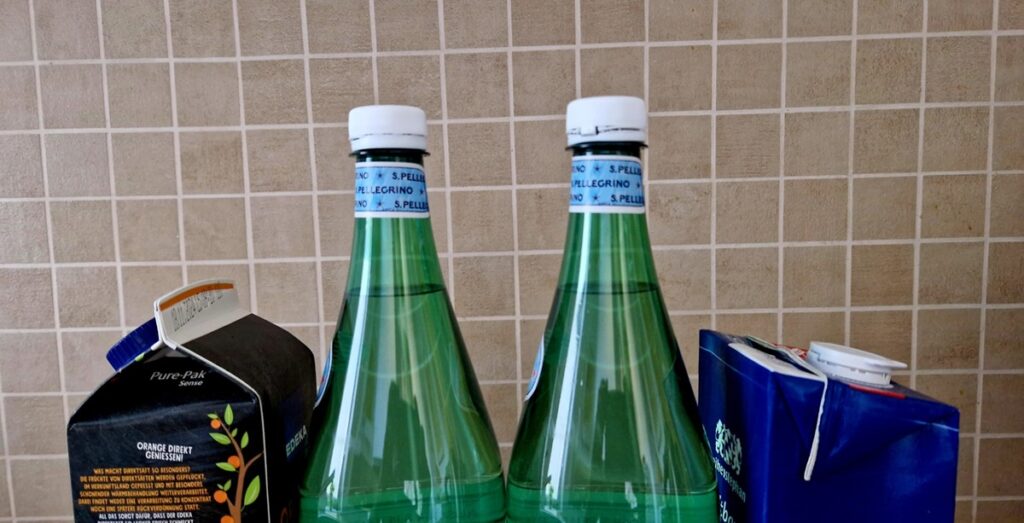The new month brings many changes that directly affect different areas of life in Germany. Pensions rise significantly, change of surnames now easier, breast cancer screening for older women, cannabis cultivation now allowed, black box to be mandatory for cars etc. Here’s an overview of all important changes in July 2024.

Pensions rise significantly
Pensions will rise by 4.57 per cent on 1 July. The increase will benefit 21 million pensioners in Germany. According to the annual economic report, this year’s pension adjustment is well above the inflation rate of 2.8 per cent.
This is the first time that pensions in East and West will increase equally, as the pension values in the old and new federal states were equalised 100 per cent with the 2023 pension adjustment.
Reduced earning capacity pension increases
Around three million people in Germany receive a reduced earning capacity pension (Erwerbsminderungsrente). From July, they too can look forward to more money. How much more they receive depends on when they started receiving their pension. If the pension started between 2001 and June 2014, there will be an increase of 7.5 per cent. If the pension started between July 2014 and December 2018, there will be an increase of 4.5 per cent.

Labour market approval now digital
If companies wish to employ skilled workers from third countries, they can apply for labour market approval from the Federal Employment Agency if the future employee is still in their home country. Companies receive the preliminary approval from the Federal Employment Agency digitally and can then send it to their future employees by email, for example. They can then use it to apply for their visa.

Cannabis cultivation now also possible in growers’ associations
From 1 July, cannabis can also be grown in cultivation associations. This requires an official licence. The associations can then distribute cannabis to adults for their own consumption. The most important questions and answers on the legalisation of cannabis at a glance.
- Adults may cultivate cannabis in limited quantities privately (up to three plants) or – from 1 July 2024 – in non-commercial associations. Cannabis may be distributed to adults for personal consumption in a controlled manner via these cultivation associations.
- Cannabis seeds may be imported from EU member states for the purpose of private home cultivation. Acquisition via the internet and shipping to Germany are permitted.
However, the import of cannabis from abroad to Germany remains prohibited. - Possession of up to 25 grams of dried cannabis is now exempt from punishment. This applies to public spaces. For private areas, the limit of 50 grams of dried cannabis applies.
- There is a general ban on advertising and sponsorship for consumer cannabis and for cultivation associations.
- Possession of cannabis remains prohibited for minors. There are also special regulations for young adults – with lower dispensing quantities and reduced THC levels.
- The public consumption of cannabis is restricted. For example, consumption is prohibited in pedestrian areas from 7 am to 8 pm.
- Education and prevention on cannabis use are being strengthened.

Longer breast cancer screening
The age limit for free breast cancer screening for people with statutory health insurance will rise from 69 to 75 in July. This means that insured persons can take advantage of early detection measures such as X-ray examinations for six years longer.
From 1 July 2024, newly eligible women will be able to register for a screening appointment.
Lung cancer screening
Heavy smokers aged between 50 and 75 can now undergo lung cancer screening using low-dose computed tomography (CT). Previously, such examinations on healthy people with no symptoms of the disease and no concrete suspicion of the disease were prohibited due to the radiation-related risks. Studies have now shown that the benefits of early detection examinations using modern low-dose CT for certain groups of people outweigh the radiation-related risks.

Name changes will be easier
The new name-change regulations expand the options and make it easier to change surnames. For example, the chosen double name in marriages can also become the birth name of joint children.
Henceforth, spouses and children will be able to have real double names. It will then be possible to have a double name made up of both surnames, which will also become the birth name of joint children.
Parents who do not have a married name and who have joint parental custody will be able to choose a double name made up of the surnames of both parents as the child’s birth name.
To avoid name chains, the number of individual names from which the new double name can be determined is limited to two.

Increase in the monthly garnishment-free amount
The garnishment-free limit (Pfändungsfreigrenze) for net income will be increased to 1,499.99 euros. Previously, the limit was 1,409.99 euros. Anyone who has to pay child support is entitled to a higher limit. For one child, this is 2,059.99 euros, and correspondingly higher for two or more children. In concrete terms, this means that only if those affected earn more than their allowance do they have to cede a portion to their creditors in the event of enforcement.
The new garnishment exemption limits must automatically be observed by employers in the case of wage garnishments and assignments and by credit institutions in the case of a garnishment protection account.

Black box obligation for cars for newly registered vehicles
Cars and light commercial vehicles registered from 7 July 2024 must be equipped with a data storage device. Similar to a black box on aircraft, this records anonymised driving data. In the event of an accident, this data can be read out and used to investigate.
The long-term aim of the new regulation is to reduce the risk of accidents and lower the number of accidents. Other driving assistance systems such as lane departure warning, emergency brake assist, adaptive brake lights, etc. will also be mandatory for newly-registered vehicles from July.
Compulsory toll for small vans
From July, the toll obligation on motorways and federal roads will also apply to vans weighing 3.5 tonnes or more. This means that parcel services, among others, will now also have to pay. Exceptions apply to tradespeople travelling in smaller construction site vehicles.


Loose beverage caps prohibited
The so-called “tethered caps”, the inseparable caps on disposable plastic bottles, can already be found on almost all PET bottles. They will be officially mandatory from 1 July. In addition to water and soft drinks, milk packaging will also be affected by the EU regulation. The new caps are intended to help reduce plastic waste caused by loose closures.
Femi Awoniyi
 THE AFRICAN COURIER. Reporting Africa and its Diaspora! The African Courier is an international magazine published in Germany to report on Africa and the Diaspora African experience. The first issue of the bimonthly magazine appeared on the newsstands on 15 February 1998. The African Courier is a communication forum for European-African political, economic and cultural exchanges, and a voice for Africa in Europe.
THE AFRICAN COURIER. Reporting Africa and its Diaspora! The African Courier is an international magazine published in Germany to report on Africa and the Diaspora African experience. The first issue of the bimonthly magazine appeared on the newsstands on 15 February 1998. The African Courier is a communication forum for European-African political, economic and cultural exchanges, and a voice for Africa in Europe.


































